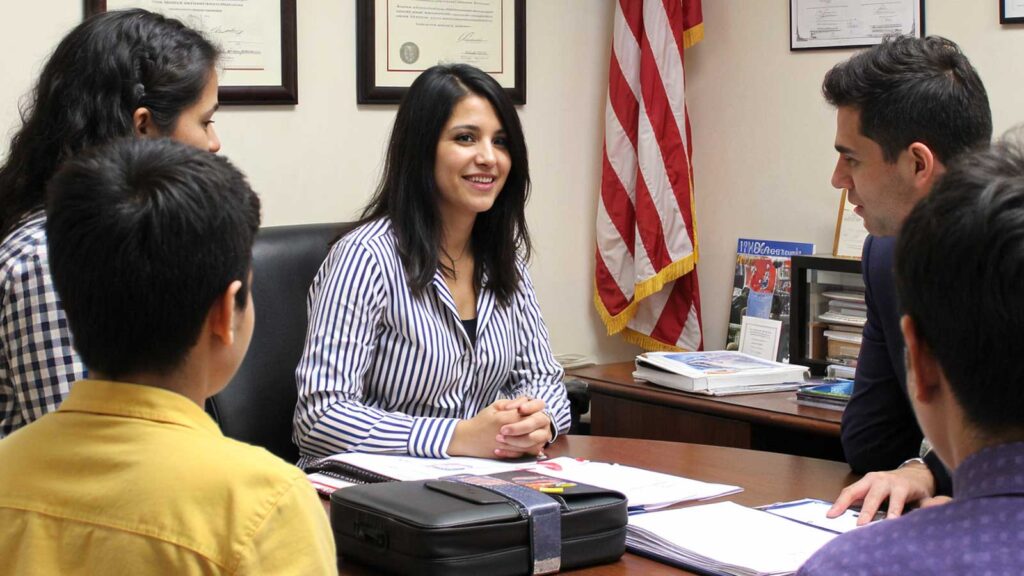Family Reunification Through U.S. Immigration: What You Need to Know
Reuniting with family members is one of the most common and meaningful reasons for immigrating to the United States. The U.S. immigration system provides pathways for citizens and lawful permanent residents to bring their loved ones into the country through family-based visas and Green Cards. While the process can be complex, understanding the available options and steps involved can make family reunification a reality.
What Is Family-Based Immigration?
Family-based immigration allows U.S. citizens and lawful permanent residents (Green Card holders) to sponsor certain relatives to immigrate to the United States. It is designed to prioritize keeping families together and is a cornerstone of U.S. immigration policy.
Who Can Be Sponsored for Immigration?
The relatives you can sponsor depend on whether you are a U.S. citizen or a Green Card holder.
- U.S. Citizens:
- Spouses.
- Unmarried children under 21.
- Married children of any age.
- Siblings (if the petitioner is 21 or older).
- Parents (if the petitioner is 21 or older).
- Green Card Holders:
- Spouses.
- Unmarried children of any age.
Other extended family members, such as grandparents, aunts, or cousins, are not eligible for sponsorship under family-based immigration.
What Are the Two Main Categories of Family-Based Visas?
Family-based immigration is divided into two categories:
- Immediate Relative Visas:
- Available to spouses, children, and parents of U.S. citizens.
- Not subject to annual caps, meaning there is no waiting list beyond standard processing times.
- Family Preference Visas:
- Available to more distant relatives, such as siblings of U.S. citizens and adult children.
- Subject to annual limits, which can result in long wait times based on visa availability and country of origin.
The Visa Bulletin, published monthly by the U.S. Department of State, shows the current wait times for family preference categories.
What Is the Process for Sponsoring a Family Member?
The process for family-based immigration involves several steps:
- Filing the Petition:
- The U.S. citizen or Green Card holder files Form I-130 (Petition for Alien Relative) with U.S. Citizenship and Immigration Services (USCIS) to establish the relationship.
- Approval and Visa Availability:
- USCIS reviews the petition. Once approved, the relative can apply for a visa if one is available. Immediate relatives can proceed without waiting for visa availability, while family preference applicants may face delays.
- Visa Application or Adjustment of Status:
- Relatives outside the U.S. apply for an immigrant visa through consular processing.
- Relatives already in the U.S. may apply for Adjustment of Status (Form I-485) to become Green Card holders.
- Medical Exam and Interview:
- Applicants must complete a medical exam and attend an interview at a U.S. embassy or consulate.
- Entry or Green Card Issuance:
- Once approved, the relative enters the U.S. on an immigrant visa or receives a Green Card.
What Documents Are Required for Family-Based Immigration?
Key documents typically include:
- Proof of the sponsor’s U.S. citizenship or Green Card status (e.g., passport, naturalization certificate, Green Card).
- Evidence of the relationship (e.g., marriage certificates, birth certificates).
- Financial documentation to meet the requirements of the Affidavit of Support (Form I-864), proving the sponsor can financially support the relative.
- Other supporting documents such as police clearances, medical exam results, and visa photos.
Using a checklist can help ensure all required documents are submitted correctly.
What Is the Affidavit of Support?
The Affidavit of Support (Form I-864) is a legally binding document where the sponsor agrees to financially support the relative. It is required to ensure that the immigrant will not rely on public benefits. Sponsors must:
- Meet a minimum income requirement, typically 125% of the federal poverty level.
- Provide evidence of income, assets, or a joint sponsor if necessary.
Failing to meet this requirement can delay or derail the immigration process.
How Long Does the Process Take?
Processing times for family-based immigration vary widely depending on the category:
- Immediate Relatives: Typically processed within 6-12 months.
- Family Preference Visas: Can take several years due to visa backlogs. For instance, siblings of U.S. citizens may wait more than a decade in some cases.
Factors such as the applicant’s home country and changes in immigration policy can also impact wait times.
What Are Common Challenges in Family-Based Immigration?
Family-based immigration can be challenging due to:
- Long Wait Times: Family preference categories often face significant delays due to annual visa caps.
- Documentary Evidence: Inadequate or missing documentation can lead to application denials or delays.
- Financial Requirements: Sponsors must demonstrate sufficient income to meet the Affidavit of Support criteria.
Seeking guidance from an experienced immigration attorney can help address these challenges effectively.
Can Fiancés Be Sponsored for Immigration?
Yes, U.S. citizens can sponsor their foreign fiancé(e) through the K-1 Visa. Key requirements include:
- The couple must intend to marry within 90 days of the fiancé(e)’s arrival in the U.S.
- Proof of a bona fide relationship, such as photos, travel itineraries, or correspondence, is required.
- Once married, the fiancé(e) can apply for a Green Card through Adjustment of Status.
How Can an Immigration Lawyer Help with Family Reunification?
An immigration lawyer can:
- Help determine the best visa option for your relative.
- Ensure all forms and documentation are accurate and complete.
- Address potential challenges such as inadmissibility issues or financial requirements.
- Represent you in case of appeals or denials.
Their expertise can save time, reduce stress, and increase the likelihood of a successful outcome.
Family reunification through U.S. immigration offers a meaningful opportunity to bring loved ones together, but the process requires careful planning and attention to detail. Whether you’re sponsoring a spouse, child, parent, or sibling, understanding the steps, requirements, and potential challenges is key to success. For personalized assistance with family-based immigration, contact the Law Offices of Karen Monrreal in Reno, NV. Our experienced team is here to guide you through every step of the process.

